Nietzsche and Buddhist Philosophy
Nietzsche once proclaimed himself the Buddha of Europe, and throughout his life Buddhism held enormous interest for him. While he followed Buddhist thinking in demolishing what he regarded as the two-headed delusion of Being and Self, he saw himself as advocating a response to the ensuing nihilist crisis that was diametrically opposed to that of his Indian counterpart. In this book Antoine Panaoti explores the deep and complex relations between Nietzsches views and Buddhist philosophy. He discusses the psychological models and theories which underlie their supposedly opposing ethics of great health, and explodes the apparent dichotomy between Nietzsches Dionysian life-affirmation and Buddhist life-negation, arguing for a novel, hybrid response to the challenge of formulating a tenable post-nihilist ethics. His book will interest students and scholars of Nietzsches philosophy, Buddhist thought, and the metaphysical, existential, and ethical issues that emerge with the demise of theism.
ANTOINE PANAOTI is Lecturer in Philosophy at McGill University and the University of Montreal, and a post-doctoral fellow at the Center of Research in Ethics, University of Montreal.
CAMBRIDGE UNIVERSITY PRESS
Cambridge, New York, Melbourne, Madrid, Cape Town, Singapore, So Paulo, Delhi, Mexico City
Cambridge University Press
The Edinburgh Building, Cambridge CB2 8RU, UK
Published in the United States of America by Cambridge University Press, New York
www.cambridge.org
Information on this title: www.cambridge.org/9781107031623
Antoine Panaoti 2013
This publication is in copyright. Subject to statutory exception and to the provisions of relevant collective licensing agreements, no reproduction of any part may take place without the written permission of Cambridge University Press.
First published 2013
Printed in the United Kingdom at the University Press, Cambridge
A catalogue record for this publication is available from the British Library
Library of Congress Cataloguing in Publication data
Panaioti, Antoine, 1984 author.
Nietzsche and Buddhist philosophy / Antoine Panaioti.
pages cm
1. Nietzsche, Friedrich Wilhelm, 18441900. 2. Buddhist philosophy. I. Title
B3318.B83P36 2012
181.043dc23
2012019062
isbn 978-1-107-03162-3 Hardback
Cambridge University Press has no responsibility for the persistence or accuracy of URLs for external or third-party internet websites referred to in this publication, and does not guarantee that any content on such websites is, or will remain, accurate or appropriate.
Acknowledgments
It would not have been possible for me to write this book without the help, encouragement, and guidance of Eivind Kahrs and Raymond Geuss, my two doctoral supervisors at the University of Cambridge, and Christine Tappolet, my postdoctoral supervisor at the Centre de recherche en thique de lUniversit de Montral. Special thanks, also, to Margaret Cone, who read P  li with me throughout my four years in the UK and with whom I engaged in several stimulating debates on Buddhist thought. I also have Vincenzo Vergiani to thank for giving me the opportunity to teach Sanskrit and Indian Intellectual History during my final year in Cambridge and to hold a seminar on Madhyamaka philosophy over the Lent, Easter, and Michaelmas terms of 2009. Teaching in the Faculty of Asian and Middle Eastern Studies helped me clarify many of my ideas on Buddhism, in particular. I also wish to thank Rupert Gethin and Martin Ruehl, my two doctoral examiners, for their constructive criticism of my dissertation and their ongoing support for the project of writing a monograph on the basis of my doctoral research.
li with me throughout my four years in the UK and with whom I engaged in several stimulating debates on Buddhist thought. I also have Vincenzo Vergiani to thank for giving me the opportunity to teach Sanskrit and Indian Intellectual History during my final year in Cambridge and to hold a seminar on Madhyamaka philosophy over the Lent, Easter, and Michaelmas terms of 2009. Teaching in the Faculty of Asian and Middle Eastern Studies helped me clarify many of my ideas on Buddhism, in particular. I also wish to thank Rupert Gethin and Martin Ruehl, my two doctoral examiners, for their constructive criticism of my dissertation and their ongoing support for the project of writing a monograph on the basis of my doctoral research.
The ideas set forth in this book took shape over a period of ten years. Countless people played a role in this process, as teachers, students, friends, adversaries, and family. I can mention but a few. At McGill University, I would particularly like to thank Alia Al-Saji, Katherine Young, Emily Carson, Lara Braitstien, Thubten Jinpa, Sanjay Kumar, Philippe Turenne, and Hasana Sharp. Many thanks, also, to Jonardon Ganeri and Jim Benson, my MPhil examiners, for their precious feedback on my thesis on N  g
g  rjunas philosophy. At the Centre de recherche en thique de lUniversit de Montral, I more recently received invaluable help from my colleagues, especially Sara Villa, Morgane Paris, Ryoa Chung, and Nathalie Maillard. I also wish to thank Hilary Gaskin of Cambridge University Press and my two anonymous external readers for their helpful feedback on the initial typescript of this work. Over the last decade, I have also benefited greatly from thought-provoking conversations and debates with a number of close friends, especially Lily Soucy, Oliver Moore, Nikolas Metaxas, Pierre-Antoine Tibri, Fabrizio Biondi-Morra, Anna Elsner, Richard Armstrong, Pierre-Luc Dziel, and Sofia Bachouchi. Nikolas Metaxas is in fact responsible for first provoking me to think about the issues dealt with in this book. In a sense, the conception of the book took place on a cold winter night of February 2005 in a Montreal caf where Nick and I locked horns over the opposition between Nietzschean life-affirmation and (presumed) Buddhist life-negation.
rjunas philosophy. At the Centre de recherche en thique de lUniversit de Montral, I more recently received invaluable help from my colleagues, especially Sara Villa, Morgane Paris, Ryoa Chung, and Nathalie Maillard. I also wish to thank Hilary Gaskin of Cambridge University Press and my two anonymous external readers for their helpful feedback on the initial typescript of this work. Over the last decade, I have also benefited greatly from thought-provoking conversations and debates with a number of close friends, especially Lily Soucy, Oliver Moore, Nikolas Metaxas, Pierre-Antoine Tibri, Fabrizio Biondi-Morra, Anna Elsner, Richard Armstrong, Pierre-Luc Dziel, and Sofia Bachouchi. Nikolas Metaxas is in fact responsible for first provoking me to think about the issues dealt with in this book. In a sense, the conception of the book took place on a cold winter night of February 2005 in a Montreal caf where Nick and I locked horns over the opposition between Nietzschean life-affirmation and (presumed) Buddhist life-negation.
Ultimately, my family deserves the most thanks. I wish to express my gratitude to my parents, Hlne Panaoti and Glen Williams, and my brother, Thomas Williams, for their unswerving support at every step on my tortuous path. Many thanks, also, to my grandparents, Constantin and Thrse Panaoti. My grandfather deserves much credit for teaching me how to reason from the age of five and forcing me to do so before I even began studying in earnest (which took a while). My grandmother, with her insatiable joie de vivre through thick and thin, has likewise been a true inspiration since childhood. All my love and deepest gratitude, finally, to my two extraordinary children, Lhassa and Alexandre Panaoti, and to their beautiful, outstanding mother, Lily Soucy. I owe everything valuable I have ever accomplished so far to Lily. And without Lhassa and Alexandre, this book would never have seen the light of day.
Note on translations, texts, and sources
All translations from French, German, Sanskrit, and P  li texts in this book are my own. I have used standard abbreviations, listed below, to refer to most of the canonical Western and Indian texts cited. In the case of Indian texts, I have relied on critical editions of texts and/or editions of these texts that Indologists critical edition of his texts, Nietzsche Werke (Berlin: W. de Gruyter).
li texts in this book are my own. I have used standard abbreviations, listed below, to refer to most of the canonical Western and Indian texts cited. In the case of Indian texts, I have relied on critical editions of texts and/or editions of these texts that Indologists critical edition of his texts, Nietzsche Werke (Berlin: W. de Gruyter).
Given that I make liberal use of Nietzsches notes and unpublished fragments, I should make my methodology clear concerning my use of such sources. The use (and abuse) of the fragments, after all, is something of a contentious issue in Nietzsche scholarship. My approach to), pp. 97106.
Several of Nietzsches fragments M. Clark , Nietzsche on Truth and Philosophy (Cambridge University Press, 1990) for more moderate versions of this view.


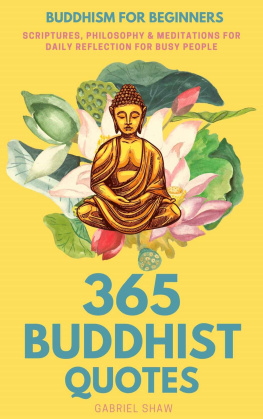
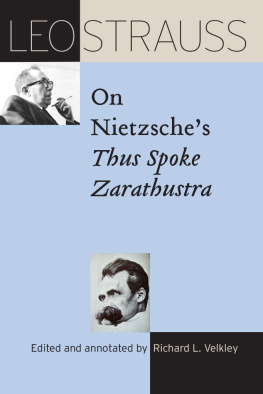



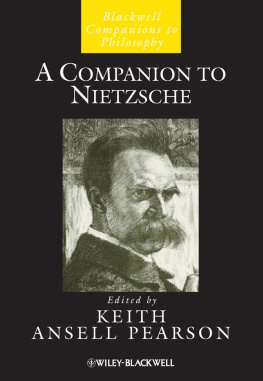

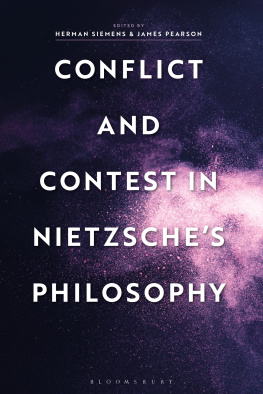
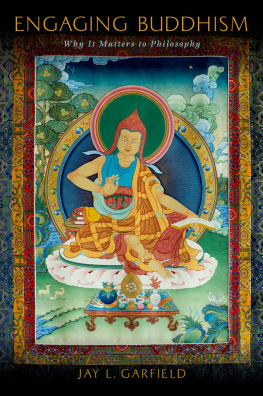
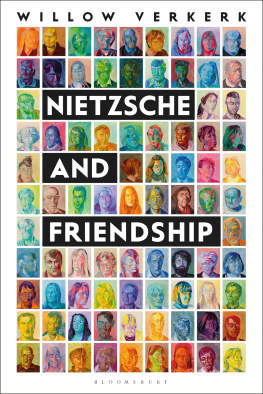
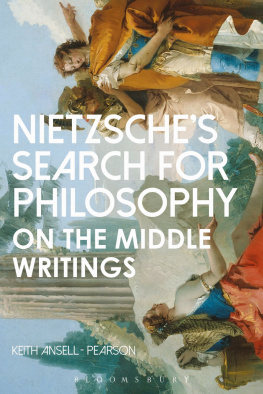
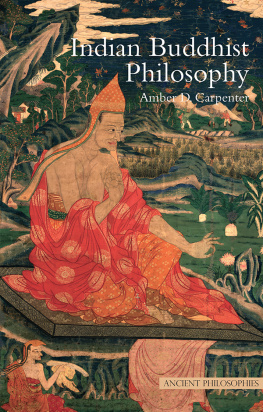

 li with me throughout my four years in the UK and with whom I engaged in several stimulating debates on Buddhist thought. I also have Vincenzo Vergiani to thank for giving me the opportunity to teach Sanskrit and Indian Intellectual History during my final year in Cambridge and to hold a seminar on Madhyamaka philosophy over the Lent, Easter, and Michaelmas terms of 2009. Teaching in the Faculty of Asian and Middle Eastern Studies helped me clarify many of my ideas on Buddhism, in particular. I also wish to thank Rupert Gethin and Martin Ruehl, my two doctoral examiners, for their constructive criticism of my dissertation and their ongoing support for the project of writing a monograph on the basis of my doctoral research.
li with me throughout my four years in the UK and with whom I engaged in several stimulating debates on Buddhist thought. I also have Vincenzo Vergiani to thank for giving me the opportunity to teach Sanskrit and Indian Intellectual History during my final year in Cambridge and to hold a seminar on Madhyamaka philosophy over the Lent, Easter, and Michaelmas terms of 2009. Teaching in the Faculty of Asian and Middle Eastern Studies helped me clarify many of my ideas on Buddhism, in particular. I also wish to thank Rupert Gethin and Martin Ruehl, my two doctoral examiners, for their constructive criticism of my dissertation and their ongoing support for the project of writing a monograph on the basis of my doctoral research.